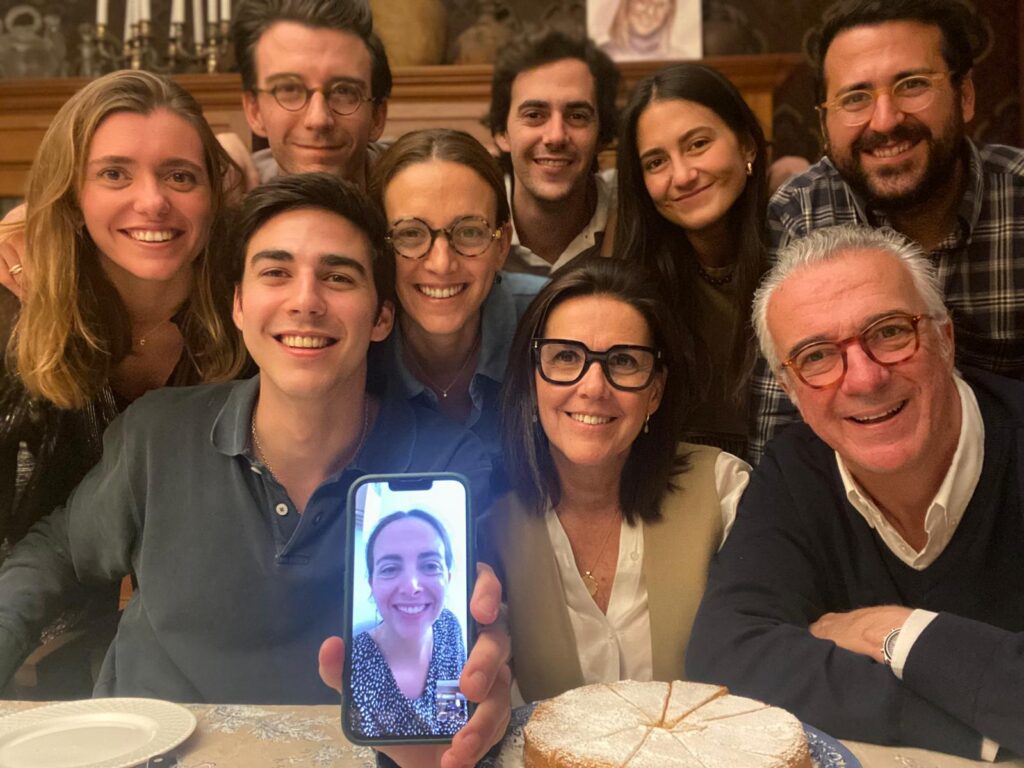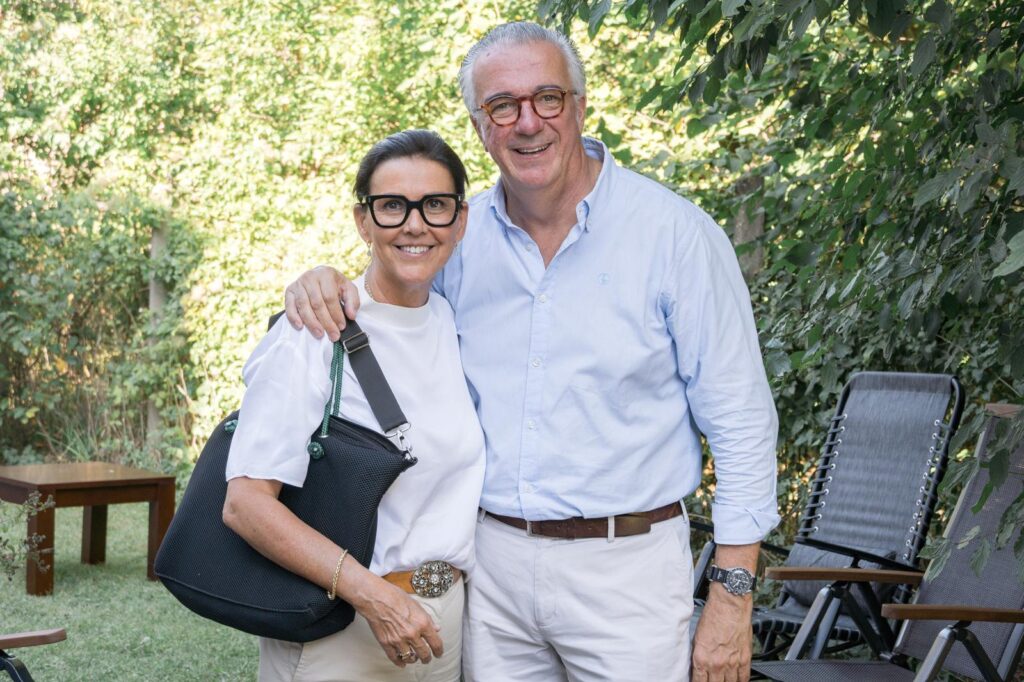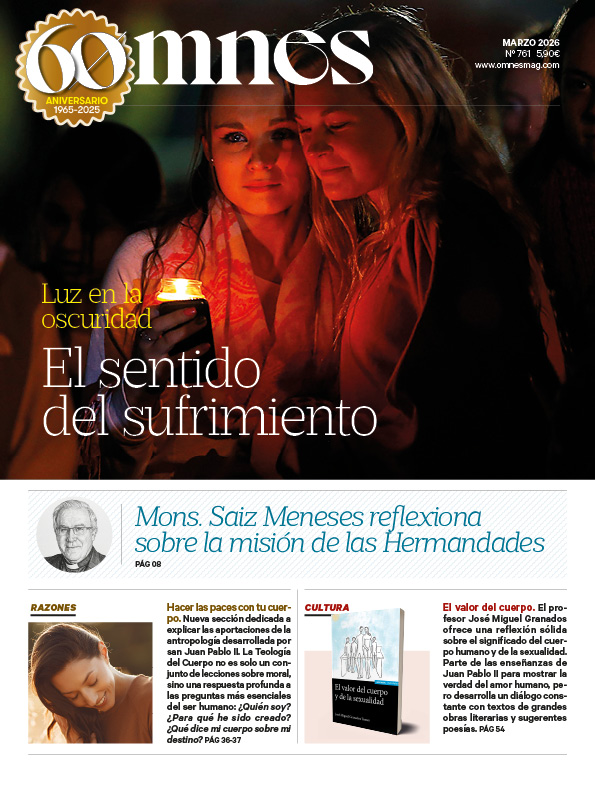On Saturday, October 18th, hundreds of families will participate in the I Family Forum DayThis meeting seeks to reflect on the role of the family in today's society as a privileged space for human, emotional and educational growth.
One of the "highlights" of this day will be Pep Borrell. This dentist, married to Mercè and father of 5 children, has put "Dancing in the kitchen" to thousands of couples around the world and has been the "cupid" of many others through social networks.
His prescription? Little things every day to make the road to marriage a happy one and to live the courtship to get to know each other. With him we talked about how to learn to be engaged, to be exemplary marriages (and not preachy) and happiness in the marital relationship.
How can we be teachers of our children without being "parent teachers" at home, giving lessons all day long?
- Parents always set an example. We set an example even when we don't want to set an example. That is, not only do we set an example on the day we set out to be "exemplary"; that Saturday when you get up, prepare breakfast for everyone, go on an outing and, "wow, what a great day!
Too many times, married couples give much more importance to how we want to raise our children and we don't keep each other in mind. I always say that one hug to your wife in front of your children is worth a hundred hugs to each child.
What the children see is beyond doubt: that the father and mother love each other and the children see it, feel it, notice it, that is the 100 % of education.
Sometimes we become obsessed with "doing things". And what we need to do is to live quietly, with a lot of peace.
It is said that young people are marrying less and less. Do you think you have received particularly negative images of marriage?
-I think that many times we speak very badly about marriage: we give bad examples, we make jokes... How many times before a young person who wants to get married we have not said things like: "Don't get married, you are still too young! Another thing is when we say to our children, in their last years of school or first years of college, things like: "don't fall in love now, you have to study". They are 16 or 18 years old, their hormones are at their peak and of course they are going to fall in love!
Of course, but they also have to study! How do we combine both?
-Without obsessing and talking to them. Sometimes we focus only on talking to them about sexuality. Not only at home, eh? also in very good schools. There comes a year when we say, "We are going to talk about the subject"..., but we stay in the pipes, in the functioning and one thing is sexuality and another, very different, is to talk about affectivity. And it is more difficult for us to talk about affectivity and it is fundamental. We have to talk about affectivity to children.
Series, movies..., even the good ones, treat this very badly and, what happens, we find that for many boys and girls sex comes first and then, if anything, we get to know each other. In order for them to know how to put things in their place, you have to talk. you have to tell 15 or 16 year old boys and girls "Yes, you are going to fall in love, and don't worry. It's a soufflé, it happens and we can make missteps ....". These are topics that need to be a recurring conversation in families.
Natalia Barcáiztegui says that we must live in the present so that, in the future, we do not have to regret the past.
In this regard, don't you think that the gap Haven't we gone from reason to heart without balancing?
-Yes, we used to live in a society that was very rationalistic. People asked why something was done and the answer was "because I say so, or because the Church says so...". From this, we have moved on to a totally emotivist and sensationalist society in which things are done because they feel like it, because I feel it or I don't feel it. Today's society tells you to "feel" and when you "stop feeling... go for something else", or another sentimental relationship.
Feelings are important but reason is also important. I insist a lot on this in my affective talks. Many young people come to me and say "I have fallen in love with a guy or girl who does not suit me at all... I tell them "like" Why? Because that boy or girl is going through a very strong feeling in his or her head and that is very important, it is a discernment.
You cannot fall in love with a person you are not attracted to, nor the other way around. There are people who tell you "there is one who would suit me very well, but I don't like him"... These are the topics we have to talk about in the family!
How do you start talking about this with your teenage children?
-We have to "put ourselves in the situation", ask them what they think, for example, of falling in love with someone very handsome but very superficial, how they would experience it... See how they breathe, talk about the subject, make it something to talk about, without obsessions, without sermons.
Parents never have to give sermons, what we have to do is to be the example, to be very coherent.

How do you learn to be a bride and groom?
-Our society confuses courtship with marriage. And we experience courtships that are like miniature marriages. There are many people who base courtship exclusively on "I feel good, I have a good time", and since I feel good and I have a good time, I will always have a good time. And therein lies the big mistake, in that the stages are burned.
In mathematical multiplication it is said that the order of the factors does not alter the product. Well, in affectivity it is the opposite: the order of the factors greatly alters the product.
Most of the inputs that reach the youngest alter the order of the products: sex first and then, if anything, personal knowledge. I see it even in very well-educated people.
Many young people talk to me about their relationships and I ask them: "Do you go out, are you going out, are you dating? We've met three times and we've kissed,"... that's not dating. They haven't even told each other how they feel about each other.
It is very important to explain what a courtship is: a courtship is for getting to know each other. A courtship is to leave it. I always say, in a courtship, either you get married or you leave. In courtship, it is essential to get to know each other very well and not to burn stages. The courtship stages are very important: attraction, falling in love, discernment.
Nobody can say, on a Saturday night, "today I'm going to fall in love", because you don't control this deep down, what you can say on a Saturday night is "today I'm going to get into bed with the first person I meet". They are different things. You fall in love when you fall in love.
Jose Pedro Manglano in "Construir el amor" (Building love) says that falling in love should let us see at the beginning what should be the end. It is a flash that makes you say "what a great thing", and now, work it out! With this person, do you see yourself capable of sharing your life? Talk about the topics that need to be talked about, don't burn stages, have marriage as your goal.
Marriage is the beginning, not the end. We see many couples who are engaged for a thousand years, live together for another 2,000 years, get married, and separate a few months later. How can this be? Because they didn't know each other. Because, for example, there were difficult or important issues that, as a couple, every time they talked about it, they argued and the solution was not to talk about it.
And, once married?
-In marriage, it's the little things of every day that are important. When you make a commitment, you say "for all the days of our life". This is very nice. I don't commit myself to be faithful all the days of my life. I mean, today. You don't need to say, "20 years from now." Today. And I have to see what I have done for the other person today: Did I love him/her? Did he/she notice?
For me, marriage is about very small but very constant things. From time to time there has to be an extraordinary, as in everything in life: a good dinner, a nice trip, a getaway.... But this is not a solution.
I see marriages that are not going well and they say "we need a trip". No. If you're not doing well, you don't need a trip. If you're not doing well, you need to stop, think... Because if you're not doing well and you go on a trip, you're going to be angry and the trip is going to go badly and you're going to spend a lot of money. What can you do? Prepare a special breakfast, pick up one thing you haven't put you....

What about those who have gotten into a "holding on" routine?
There are many such marriages. And many that are Catholic and very good marriages, but they don't enjoy it, and it's a shame. I always think that, when they die, St. Peter will say to them, "Come in, but you are a fool. Because you could have had a great time on earth and you have been making a fool of yourself". I come back to the same thing: to the little things of every day and to stop, think, propose and ask for help if necessary.
José Fernández Castiella in "Marriage, the great divine invention", says that marriage is not a matter of tips, Neither of advice, it is the firm conviction of loving a person with a love that transcends us. This is clear to many of those people who put up with it, but do not enjoy it.
God thought of us as a man and a woman and we have to stop and think, which "in Christian" means to pray. To take out the consent form and read it to him, even if you have been married for 40 years; to look at each other more, to make ourselves more beautiful for each other, to have details of service.
We see a new generation that, more and more, wants to be prepared for marriage and is looking for referents Is the future better?
-Totally. St. John Paul II saw spring buds, I see forests! During the week I am a dentist and I dedicate the weekend to this and a lot of young people write to me.
It is not true that young people do not want to commit themselves. There are those who don't, because there are people for everything. But there are many who do want to commit themselves and many who want to do things well. And these, who want to do things well, are much more convinced than those of my age, those of us who are 60 years old. Because at that time everyone thought the same way, or it seemed so, as if by inertia.
What I see is that the world has become too small for young people. They think they are going to find a prince charming that does not exist. They have their fears and we also live a very comfortable life, where everything comes true in a click... and the subject of love is a complex one.








